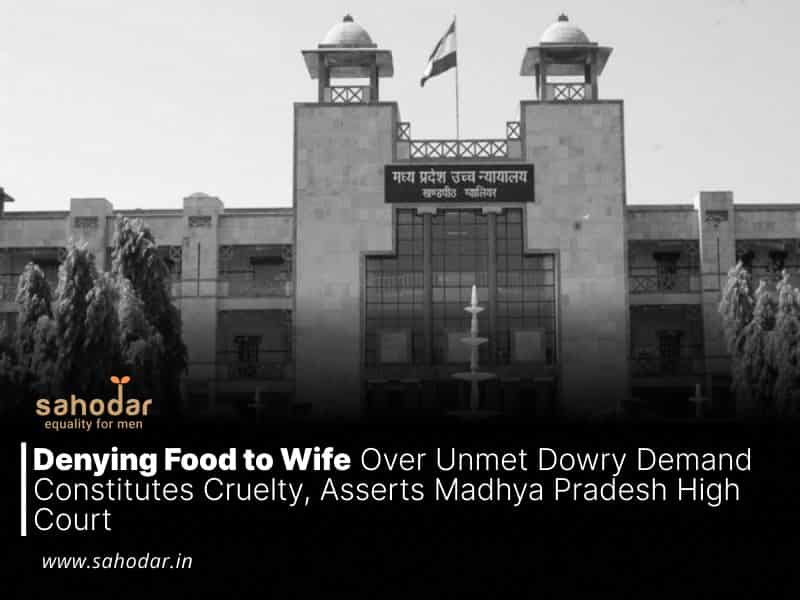The Court further observed that compelling a married woman to live in her parental home on account of non-fulfillment of demand of dowry would also amount to mental harassment.
The recent ruling by the Madhya Pradesh High Court established that depriving a married woman of food due to unmet dowry demands is an act of both physical and mental cruelty. Justice Gurpal Singh Ahluwalia’s bench additionally noted that forcing a married woman to reside at her parental home because of unmet dowry demands also qualifies as mental harassment, falling under Section 498A (cruelty to wife) of the Indian Penal Code (IPC).
These observations were made in a March 4 order where the Court rejected a plea filed by a husband and his family members seeking to dismiss a First Information Report (FIR) filed by the wife. The FIR accused them of offenses under Sections 498A (cruelty), 506 (criminal intimidation), and 34 (common intention) of the IPC, along with Section 3/4 of the Dowry Prohibition Act.
According to the FIR, filed by the wife, after her marriage to the husband in April 2018, her father provided sufficient dowry. However, the husband and her in-laws withheld food from her, causing her to go hungry and thirsty. The FIR also claimed that she suffered mental harassment because an air-conditioned car was not provided as part of the dowry. Additionally, it stated that she had been staying at her parental home for the past year as the husband and his family allegedly failed to bring her back to the matrimonial home.
The husband and his family moved the High Court to challenge the FIR, arguing that the wife’s allegations were vague and that the FIR was a retaliation against complaints made by the husband. However, after reviewing the case and the allegations outlined in the FIR, the Court observed that withholding food from a married woman due to unmet dowry demands undoubtedly constitutes both physical and mental harassment. The Court further stated that the FIR cannot be dismissed merely because it was filed after the husband initiated divorce proceedings, as it cannot be considered a retaliatory action.
“If the FIR lodged after filing of divorce petition is considered, then it can also be said that the respondent No.2 might be interested in saving her matrimonial life, therefore, she kept quiet and only when she realized that now her husband has gone to the extent where the possibility of reconciliation is bleak, then if she lodges the FIR for the misdeeds done to her than it cannot be said that it is by way of counter blast to the divorce petition,” the Court remarked.
The Court determined that the relationship between the husband, his in-laws, and the wife was strained, with the husband even accusing the wife of adultery.
“If the allegation of adultery is found to be incorrect, then that allegation, by itself, would amount to cruelty. Under these circumstances, this Court is of considered opinion that no case is made out warranting interference. The application fails and is hereby dismissed,” the Court observed.

